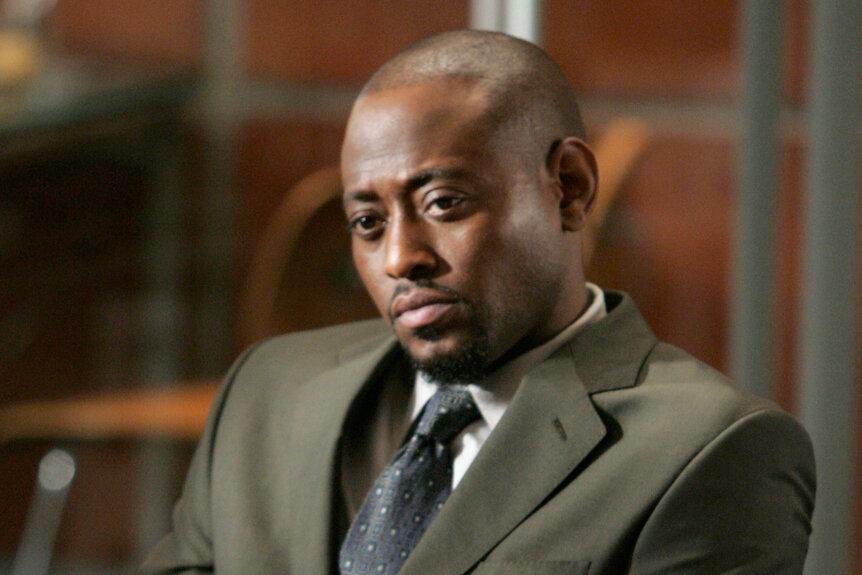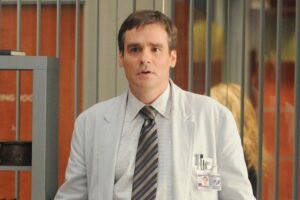1. “Intuition doesn’t justify itself; results do.”
2. “Logic is my compass, but it’s the heart that navigates the storm.”
3. “Sometimes doing the right thing means stepping outside the lines.”
4. “Challenge equals growth; I’m not afraid of either.”
5. “The truth often hides behind layers of bias, and I’m here to strip them away.”
6. “Don’t confuse arrogance with precision.”
7. “In medicine, the gray zone is where humanity thrives.”
8. “I don’t follow rules blindly; I evaluate their worth.”
9. “The mind is sharpest when patience is thin.”
10. “Trust is a fragile gift, but it’s essential in our line of work.”
11. “The disease is never just a condition, it’s a story waiting to be told.”
12. “Being right can be lonely, but it’s a solitude I’ll endure.”
13. “Experience doesn’t make you infallible, but it does improve your odds.”
14. “Knowledge is power, but wisdom is the key to wield it responsibly.”
15. “I’m a doctor, not a miracle worker, but sometimes miracles happen anyway.”
16. “Precision in medicine isn’t a luxury; it’s a necessity.”
17. “I confront the illness, not just treat its manifestations.”
18. “In medicine, the stakes are life and death; not much room for ego.”
19. “Sometimes the right decision feels wrong until it finally pays off.”
20. “Observing what’s not being said often reveals more than what’s spoken.”
21. “In the face of uncertainty, preparation is your best ally.”
22. “Solutions rarely upstage persistence in the race to save lives.”
23. “My mind wanders for answers; my heart stays focused on truth.”
24. “Scrutiny breeds progress; questions propel us forward.”
25. “Approach the unknown with caution and curiosity in equal measure.”
26. “Feeling unsettled often means you’re on the brink of a breakthrough.”
27. “Courage often masquerades as defiance.”
28. “Disease may disrupt the body, but it’s the mind that resists.”
29. “I value questions over blind faith.”
30. “Every diagnosis is a puzzle; some pieces are just harder to find.”
31. “I don’t shy from complexity; simplicity can be deceiving.”
32. “A healthy skepticism keeps the mind agile.”
33. “Diagnosis is as much art as it is science.”
34. “Precision isn’t about perfection; it’s about clarity.”
35. “Don’t let fear dictate outcomes; let data lead.”
36. “Our patients live in narratives; treatment is rewriting their futures.”
37. “Contradictions aren’t failures, just unaddressed truths.”
38. “Solving medical mysteries requires more than a prescription.”
39. “Dismiss nothing until everything adds up.”
40. “Sometimes the hardest path reveals the simplest truths.”
41. “Compassion should guide the scalpel, not dull it.”
42. “The body fails, but the human spirit is relentless.”
43. “No two cases are alike, and neither are solutions.”
44. “Doubt isn’t weakness, it’s a catalyst for understanding.”
45. “We battle anonymity in every unknown symptom.”
46. “Precision in diagnosis is insurance against chaos.”
47. “It’s not about being right; it’s about getting it right.”
48. “The face of medicine is change; adaptability is survival.”
49. “Every patient impacts you in ways textbooks never could.”
50. “Medicine bridges the gap between suffering and relief.”
Exploring Fan Theories About Dr. Eric Foreman from House M.D.
As a series renowned for its intricate character development and captivating plot twists, House M.D. has inspired countless fan theories over the years. Dr. Eric Foreman, portrayed by Omar Epps, stands out as one of the central figures who often captures viewers’ analytical imaginations. Let’s dive into some of the most compelling fan theories about Dr. Foreman that have sparked lively discussions among the show’s aficionados.
One popular fan theory suggests that Dr. Foreman’s tumultuous journey is a deliberate parallel to Dr. House’s own path, symbolizing the thin line between brilliance and self-destruction. Much like House, Foreman is portrayed as a gifted diagnostician with a rebellious streak, often conflicting with authority while exhibiting signs of arrogance. The theory posits that Foreman’s struggles mirror House’s but provide a glimpse of hope that redemption and improvement are possible, distinguishing him as a character who learns from his experiences rather than being consumed by them.
Among the intriguing theories is the idea that Foreman is the true heir to House’s legacy. While several characters on the show are mentored by House, fans speculate that Foreman is his genuine successor in intellect and leadership. This theory is bolstered by Foreman’s ability to stand up to House, challenge his decisions, and even take over House’s role at Princeton-Plainsboro Teaching Hospital, emulating his mentor’s diagnostic prowess while offering a more balanced moral compass.
Another layer to Foreman’s character that fans have theorized about is how his backstory shapes his professional demeanor and personal relationships. Growing up in a challenging environment and overcoming significant hurdles is believed to fuel his determination to succeed and his need to prove himself continuously. This theory suggests that Foreman’s dedication to medicine and his often cold exterior are defense mechanisms developed from a past he strives to distance himself from, adding depth to his role within the series.
In conclusion, the fan theories surrounding Dr. Eric Foreman enrich our understanding of his character and highlight the show’s complexity and depth. Whether exploring his parallels with House, analyzing his evolution, or delving into his backstory, these theories invite viewers to reconsider and appreciate the nuances of Foreman’s role in House M.D.. These discussions not only keep the show alive in the minds of its fans but also underscore the profound impact of well-crafted television storytelling.








